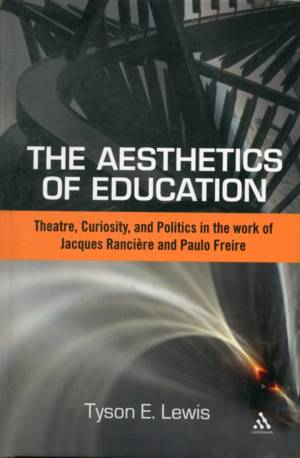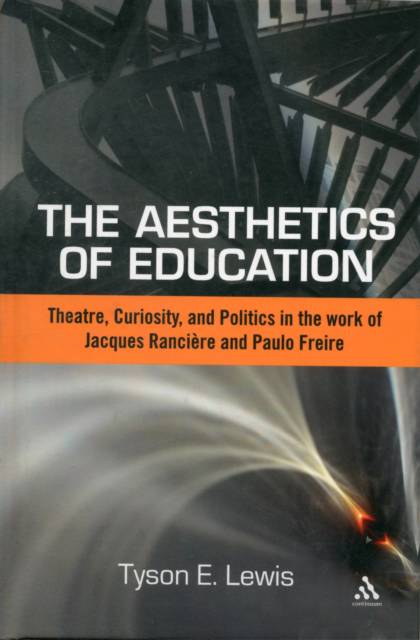
- Afhalen na 1 uur in een winkel met voorraad
- Gratis thuislevering in België vanaf € 30
- Ruim aanbod met 7 miljoen producten
- Afhalen na 1 uur in een winkel met voorraad
- Gratis thuislevering in België vanaf € 30
- Ruim aanbod met 7 miljoen producten
Zoeken
The Aesthetics of Education
Theatre, Curiosity, and Politics in the Work of Jacques Ranciere and Paulo Freire
Tyson E Lewis
Hardcover | Engels
€ 296,95
+ 593 punten
Uitvoering
Omschrijving
This innovative book examines the aesthetic event of education. Extending beyond the pedagogy of art or art appreciation, Tyson E. Lewis takes a much broader view of aesthetics and argues that teaching and learning are themselves aesthetic performances. As Jacques Ranciere has recently argued, there is an inherent connection between aesthetics and politics, both of which disrupt conventional distributions of who can speak and think. Here, Lewis extends Ranciere's general thesis to examine how there is not only an aesthetics of politics but also an aesthetics of education. In particular, Lewis' analysis focuses on several questions: What are the possibilities and limitations of building analogies between teachers and artists, education and specific aesthetic forms? What is the relationship between democracy and aesthetic sensibilities? Lewis examines these questions by juxtaposing Ranciere's work on universal teaching, democracy, and aesthetics with Paulo Freire's work on critical pedagogy, freedom, and literacy. The result is an extension and problematization of Ranciere's project as well as a new appreciation for the largely ignored aesthetic dimension of Freire's pedagogy of the oppressed.
Specificaties
Betrokkenen
- Auteur(s):
- Uitgeverij:
Inhoud
- Aantal bladzijden:
- 192
- Taal:
- Engels
Eigenschappen
- Productcode (EAN):
- 9781441157713
- Verschijningsdatum:
- 14/06/2012
- Uitvoering:
- Hardcover
- Formaat:
- Genaaid
- Afmetingen:
- 150 mm x 231 mm
- Gewicht:
- 453 g

Alleen bij Standaard Boekhandel
+ 593 punten op je klantenkaart van Standaard Boekhandel
Beoordelingen
We publiceren alleen reviews die voldoen aan de voorwaarden voor reviews. Bekijk onze voorwaarden voor reviews.











